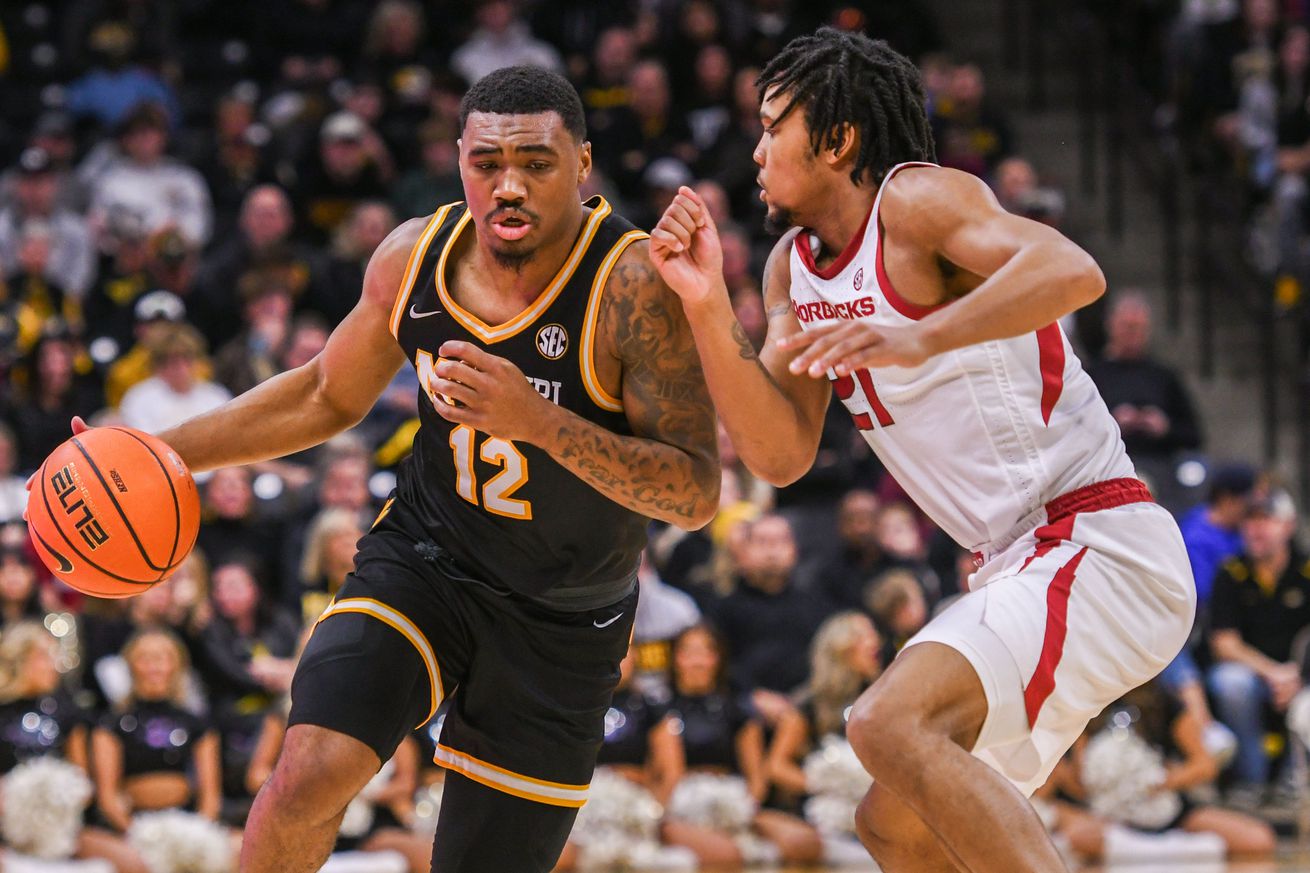
The Iowa transfer came in with high expectations, but ended up being just a solid piece on a good team.
Last spring when Dennis Gates secured the commitment of Iowa transfer Tony Perkins, it seems like the perfect fit. Missouri needed to strengthen its ballhandling and perimeter scoring. The Tigers also needed a plus defender at the point of attack, and Perkins solved all of those issues.
He was a 2nd team all Big 10 selection, meaning you knew what sort of production he would provide. The only real problem arose when in house development threw a small wrench in the plans to ramp up Perkins during his one season in Columbia.
Perkins began the season suffering a bit from a lingering hamstring issue. That setback did provide an obstacle, but the bigger obstacle was the emergence of sophomore Anthony Robinson. Robinson stepped into the starting lineup and was one of the SEC’s top defenders. His youthful energy sometimes drew an extra foul or two, but with Robinson leading the charge for the team much of the time, Perkins was pushed off the ball and into a secondary role.
Perkins possessions, or usage rate, dropped off from his previous season at Iowa. When he was steering the Hawkeyes offense, Perk usage was 24.8% or virtually one of every four possessions he was on the floor. At Missouri that dipped to 20.2%.
Tony had several big moments during the season, but those moments were mostly fleeting as he took a backseat to Mark Mitchell, Caleb Grill, Tamar Bates and Robinson. He scored in double figures 6 times in 18 SEC games. He averaged just 8.7 points, which was 5th on the team.
But while Perkins didn’t provide the scoring impact many expected, he did provide a more physical presence defensively. He also was a fearless attacker in the open floor, even if his experiences running a pick and roll were bumpy. He had a career best 54.2% free throw rate, and also hit career marks on his effective Field Goal percentage as well as his True Shooting percentage.
Missouri honed Perkins offensive package and used him less in ways he wasn’t as likely to succeed. It did cause his usage to drop and also his efficiency go up. The overall production dipped, but it’s hard to say he didn’t have a good season overall when he was a starter much of the year on a team that finished top 20 in KenPom.
It wasn’t the season many envisioned, but Perkins was as solid of a player as was needed at the minimum. Maybe a healthier version gets you a bit more at the start and that carries through, but more than anything I think he was just a bit of a victim of circumstances with how the rest of the roster fleshed out.
He’ll be remembered for playing 30 minutes against Kansas in the first big win of the season, as well as several big momentum changing — or continuing — dunks like the one he had on Alabama. Perkins mixed in well this year even if it wasn’t a perfect fit. His physical play, willingness to rebound and defend will be missed at least.